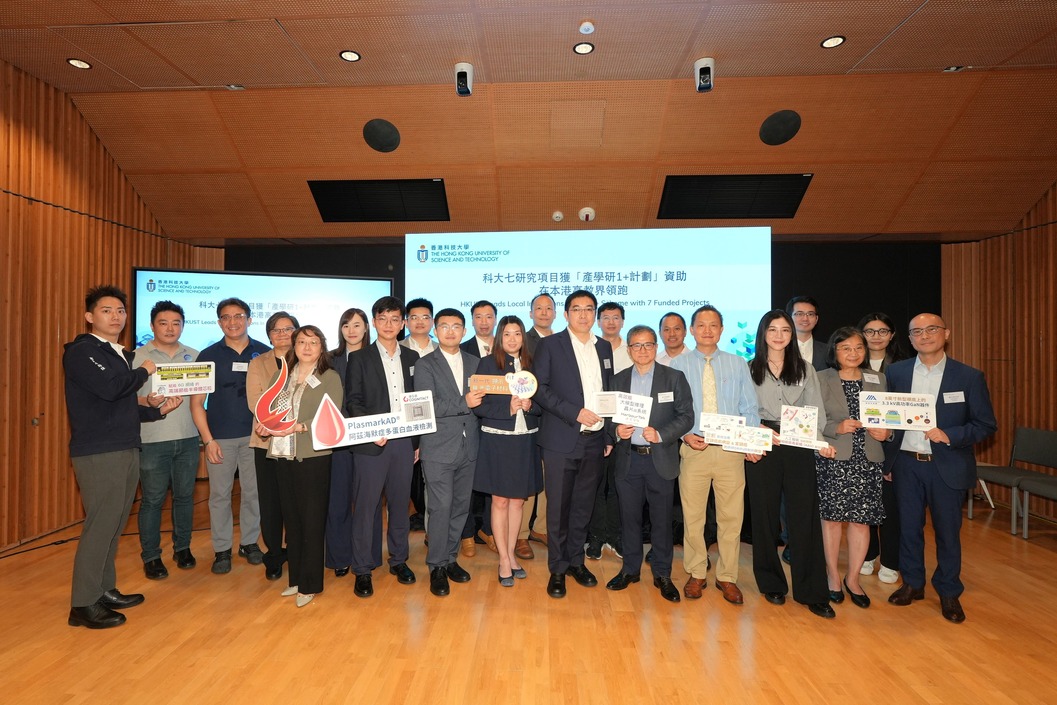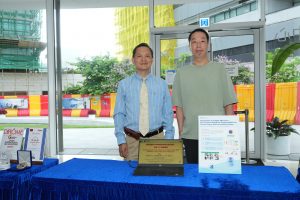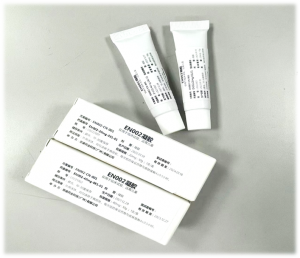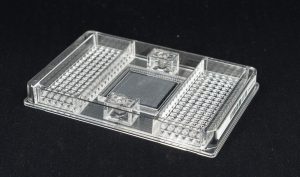
The Hong Kong University of Science and Technology (HKUST) secured grants for seven teams-the highest number among local institutions with two of the projects being awarded from the Division of Life Science.
Prof. LIANG Chun, Associate Professor from the Division of Life Science leads the project titled “Development of a Highly Efficacious First-in-Class Vaginal Gel Targeting DRIPs for Cervical Cancer and Precancerous Lesions”.
Project Details: Current treatments for cervical precancerous lesions rely heavily on invasive surgeries, which pose risks of premature birth, miscarriage, and high recurrence rates, particularly exacerbating healthcare disparities in developing countries. To address this issue, Prof. LIANG Chun and his team have developed a first-in-class vaginal gel that targets DNA replication-initiation proteins (DRIPs). This innovative therapy selectively induces apoptosis in abnormal cells while preserving healthy tissue, providing a safe, effective, and non-invasive alternative to surgery. Preclinical studies show 96% tumor growth inhibition and nearly 100% eradication of cervical cancer and precancerous cells. The team holds 17 patents for this technology and aims for its launch by 2031.

The “Development of a Highly Efficacious First-in-Class Vaginal Gel Targeting DRIPs for Cervical Cancer and Precancerous Lesions”. A group photo of Principal investigator Prof. LIANG Chun, Division of Life Science at HKUST (left) and his Postdoctoral Fellow Marco CHEUNG Man-Hei (right).

The team has developed a new generation of anticancer drugs that target DNA replication-initiation proteins (DRIPs), including a first-in-class topical gel for skin cancer and precancerous lesions, now in Phase II clinical trial, as shown in the photo. Building on this foundation, the team has developed a vaginal gel which is in preclinical study. This innovative therapy selectively induces apoptosis (programmed cell death) in abnormal cells while preserving healthy tissues, providing a safe, effective, and non-invasive medicine for cervical cancer and precancerous lesions.
Dr. JIANG Yuanbing, a Postdoctoral Fellow working in Prof. Nancy Ip’s lab, in the Division of Life Science, HKUST serves as the Principal Investigator for the Project: “Multi-centers clinical development of blood biomarker panels for detection of prodromal, mild cognitive impairment and early Alzheimer’s disease.” The Project Leader is Dr. OUYANG Li, Managing Director, Cognitact.
Project Details: Amid a global aging crisis, Alzheimer’s disease (AD) affects over 55 million people, with projections of 139 million by 2050. Building on pioneering research by Prof. Nancy Ip at HKUST, Dr. JIANG Yuanbing and the team have developed the world’s first multi-protein blood test for AD. This innovative tool was further developed into two pipelines at Cognitact: PlasmarkAD® Pro Series, offering 96% accuracy in identifying AD-related amyloid pathology and distinct AD-related biological processes; and the cost-effective PlasmarkAD® Lite for timely risk evaluation and screening, particularly in underserved communities. These advancements reduce testing costs by up to 80% compared to traditional PET scans. Supported by the RAISe+ Scheme, Cognitact is launching global trials to validate this transformative diagnostic solutions, and eventually benefit the ageing society at large.

“Multi-centers clinical development of blood biomarker panels for detection of prodromal, mild cognitive impairment and early Alzheimer’s disease”. A group photo of Prof. Amy FU, Research Professor of the Division of Life Science at HKUST (second right); Dr. Fanny IP, Chief Scientific Officer of the Hong Kong Center for Neurodegenerative Diseases (third left); Principal Investigator Dr. JIANG Yuanbing, Postdoctoral Fellow of the Division of Life Science (third right); Project Leader Dr. OUYANG Li, Managing Director of Cognitact (middle); and other team members.

The team has developed world’s first comprehensive multi-protein AD blood test and identified 22 key biomarkers for AD. Combined with proprietary machine learning algorithms, the technology achieves a detection accuracy rate of up to 96%, achieving ultra-sensitive, highly specific and low false positive/negative rate in detecting the disease early. A photo of ultrasensitive blood protein biomarker analysis chip.
Initiated by the government in 2023, the RAISe+ Scheme aims to fund university research teams with strong potential to generate real social impact and market value. To qualify for funding, applicants must demonstrate excellence and distinction in the commercial viability of their project outcomes, as well as their relevance to government policies and community interests, among other areas. Last year, five HKUST teams received RAISe+ awards, and the funding has helped accelerate commercialization of their research discoveries, resulting in a win-win outcome among industry, academia, and research sectors.